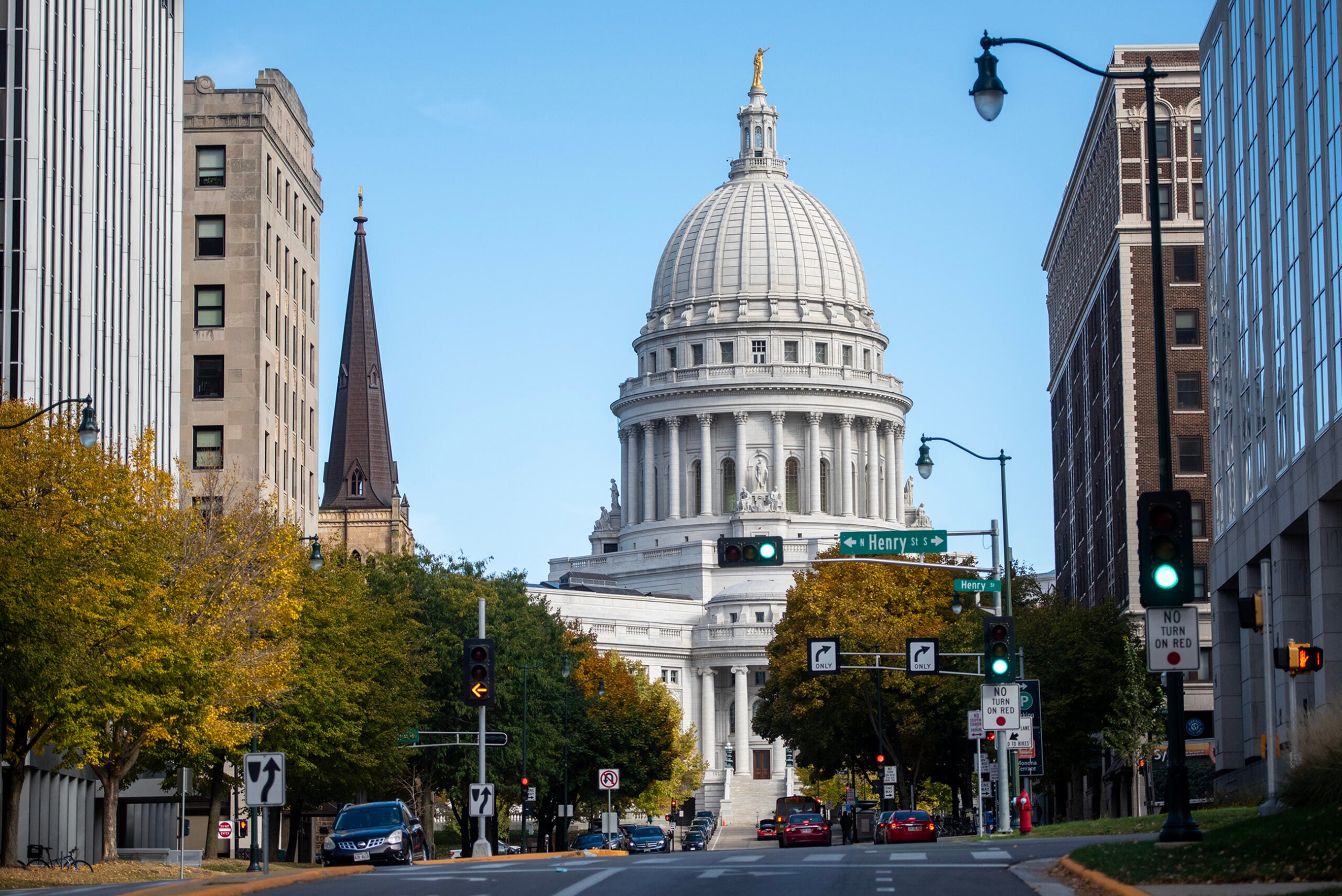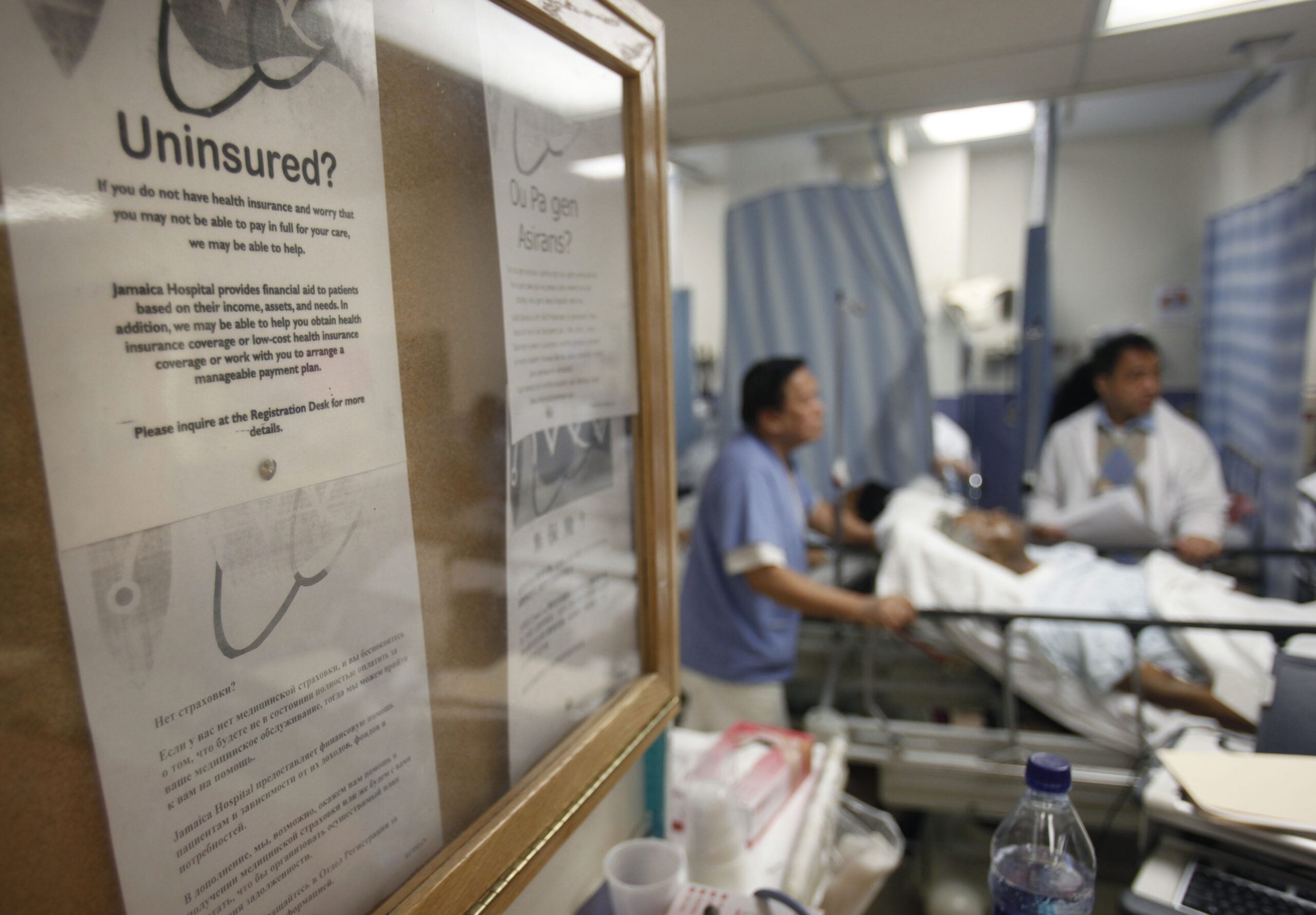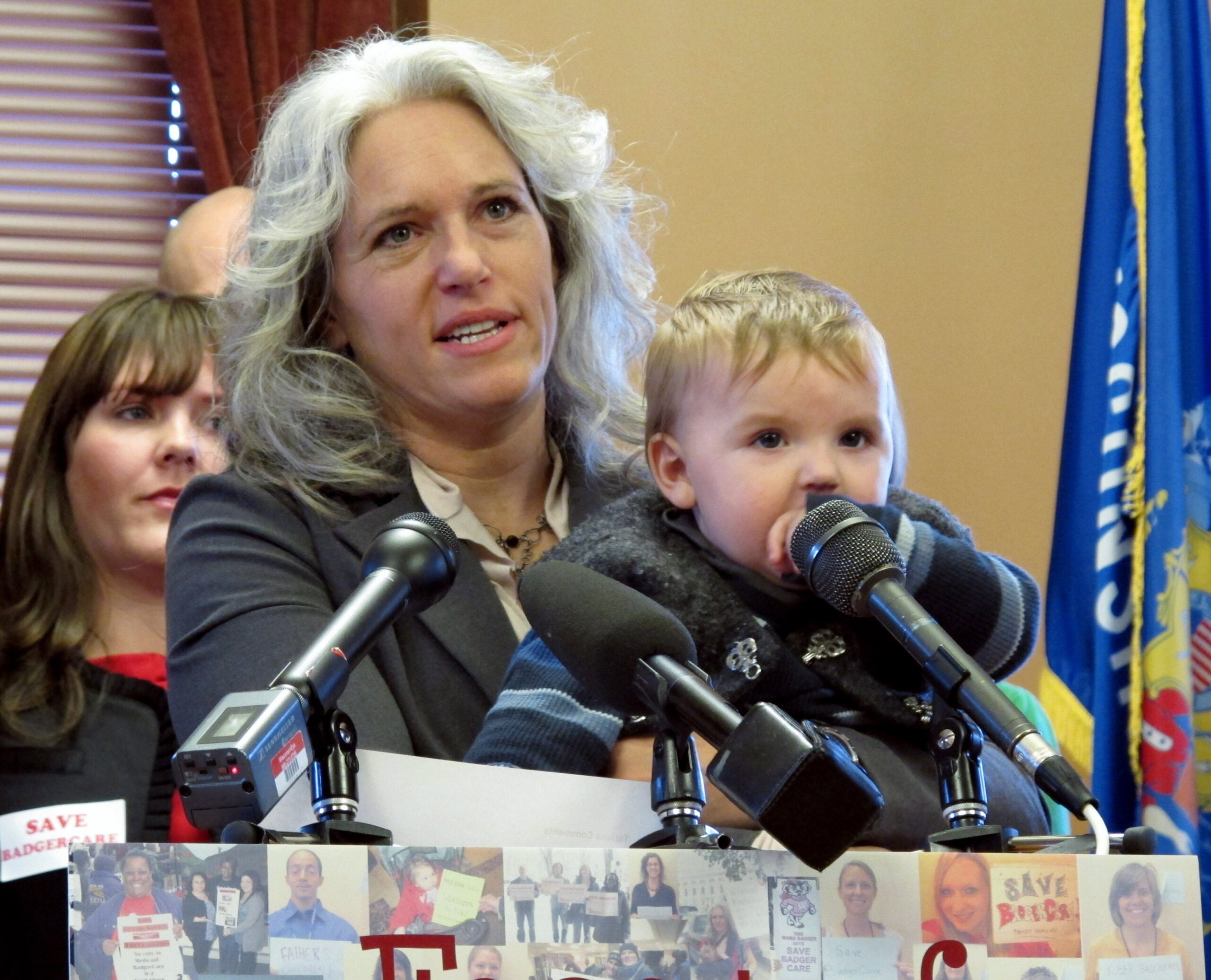As an invitation-only audience gathered at the Cleary Alumni & Friends Center on the University of Wisconsin-La Crosse campus in mid-October, the candidates running for Wisconsin’s 32nd Senate District seat prepared to face off in their only debate.
The incumbent, Democratic Sen. Brad Pfaff of Onalaska, is running for his second term. He faces Republican Stacey Klein, a financial advisor who currently serves on the nonpartisan Trempealeau County Board of Supervisors.
Both candidates tout agricultural upbringings. Klein grew up on a dairy farm in Trempealeau County, while Pfaff was raised on his family’s farm in La Crosse County.
News with a little more humanity
WPR’s “Wisconsin Today” newsletter keeps you connected to the state you love without feeling overwhelmed. No paywall. No agenda. No corporate filter.
And they both say there is more to unite residents of the 32nd than to divide them.
“I’ve been to so many municipal board meetings and I tend to hear the same types of complaints and information there,” Klein said. “(The district is) rural enough where we can really still work together and appreciate those differences. But then we’ve got so much more that brings us together.”
Pfaff echoed that sentiment, saying as a state senator, he has “worked hard to make sure that we do not divide rural versus urban because that’s not helpful for any of us.”
“We need to continue to try and build bridges and bring things together and talk about the importance of investing in this area and how it will be successful for all,” he continued.
Wisconsin’s budget surplus
Newly released analysis shows Wisconsin ended the previous fiscal year with a $4.6 billion budget surplus. The report, released by Gov. Tony Evers and the Wisconsin Department of Administration, also revealed the state’s “rainy day” fund is at an all-time high of $1.9 billion.
Pfaff said if reelected, his priority for spending the surplus would be lowering costs of services like child care and improving supply chain manufacturing.
“We know how to make things in this state. We know how to grow things,” he continued. “We need to build out that supply chain. We need to make sure that we’ve got a strong infrastructure with roads and bridges. All of that’s very important.”
Klein highlighted her desire to “get that money back out to the taxpayers.” She also said schools and local governments need stronger state support.
“I come from local government. I see what goes on there,” Klein said. “The top thing we hear about is roads. The state funding for local governments has been stagnant for decades. The shared revenue bill was a great step in the right direction, but we need to do more.”
PFAS mitigation funding
Residents of the Town of Campbell, near La Crosse, are among those whose drinking water has been contaminated by perfluoroalkyl and polyfluoroalkyl substances, known as PFAS. They are known as “forever chemicals” because they do not break down in the environment. PFAS can be found in everything from household cleaning products to industrial fire suppression materials.
This year, the Legislature passed, but Evers vetoed, a bill that would have provided grants to homeowners and others affected by PFAS contamination. The candidates were asked how they would like to spend the $125 million that has been allocated for PFAS mitigation but is now held up in legislative processes.
Klein said failure to sign the bill into law is costing homeowners.
“That money was going to go out for municipal grants, money to go to innocent land owners because we shouldn’t be holding them accountable,” she said. “It was also to reduce the cost of testing. There was a lot of really good stuff in that bill.”
Pfaff agreed, but said the bill didn’t do enough to hold polluters accountable.
“In the Town of Campbell right now, we have residents that have been drinking bottled water for nearly four years. That cannot last,” Pfaff said. “My question is, do you believe taxpayers should pay for this cleanup, or should the polluters? I believe the polluters should pay for the cleanup. I do not believe taxpayers should, and the way that bill is structured right now, it lets the polluters off the hook and that is unfair.”
BadgerCare expansion
Wisconsin could save up to $1.7 billion by expanding Medicaid under the state’s BadgerCare Plus program, according to a report from the Wisconsin Policy Forum. Currently, Wisconsin is one of only 10 states that still rejects Medicaid expansion, a signature part of the Affordable Care Act.
Sen. Pfaff said he supports expansion.
“BadgerCare expansion would provide additional health care opportunities for at least 90,000 Wisconsin residents,” he said. “We could use that money then to put into our rural health care network to make sure that our rural hospitals and clinics can stay strong. We don’t want to see a situation like we’ve had in the Chippewa Valley where two hospitals have recently closed.”
Klein disagrees.
“We need to realize that the reasons some of these hospitals have closed is because they had they had too many Medicaid patients and the Medicaid reimbursement rate isn’t high enough to make up for that,” she said. “It puts an additional financial burden on these medical systems and it makes it very difficult for them to keep going.”
Reproductive rights
More than two years after the U.S. Supreme Court overturned Roe v. Wade, the Wisconsin Supreme Court is still considering multiple challenges to the state’s abortion law. Neither candidate in the race for the 32nd Senate supports the 1849 law currently on the books.
Klein favors letting voters directly decide the abortion issue in a statewide referendum.
“There’s so much anger and hate on either side,” she said. “We can get together and have conversations — not necessarily to change opinions, but to gain consensus, to gain understanding.”
Klein said her views have changed over the years, so she’s interested in hearing from the public.
“Personally, for me, this is an issue that I’ve struggled with where I stand. I’ve been in different directions,” she said, “so if I were given the opportunity to represent this area, I would want to have listening sessions to have a very good understanding of what’s wanted.”
Pfaff said he feels like the views of the public are already clear.
“They want to see codified into law Roe v. Wade,” he said. “There is absolutely no business for the government or politicians to be in our bedrooms. There is no business for the government or politicians to be telling people what kind of reproductive healthcare decisions they should make.”
Find all of WPR’s election coverage including presidential, congressional and legislative races at wpr.org/election2024.







